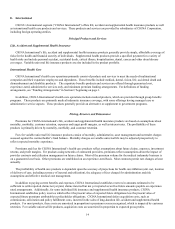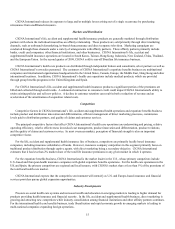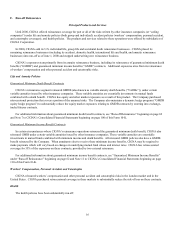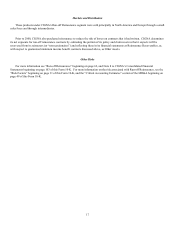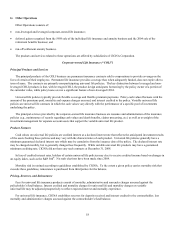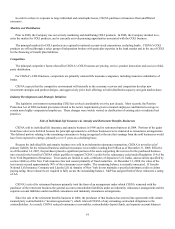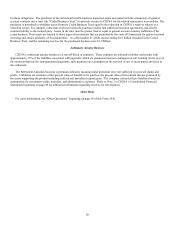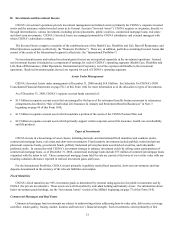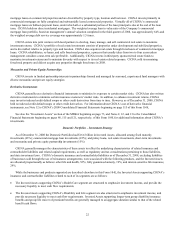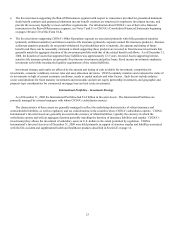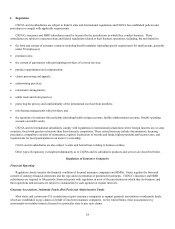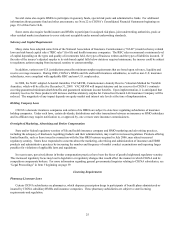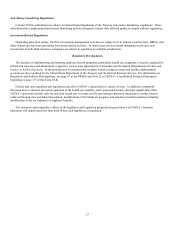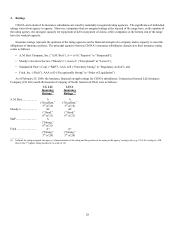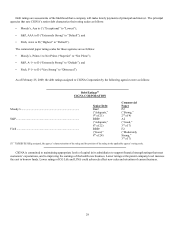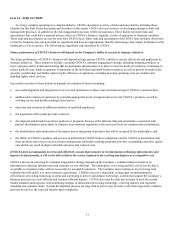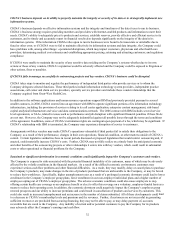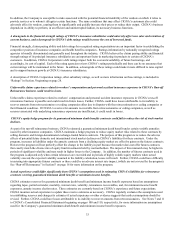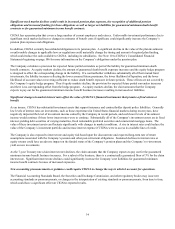Cigna 2008 Annual Report Download - page 44
Download and view the complete annual report
Please find page 44 of the 2008 Cigna annual report below. You can navigate through the pages in the report by either clicking on the pages listed below, or by using the keyword search tool below to find specific information within the annual report.24
I. Regulation
CIGNA and its subsidiaries are subject to federal, state and international regulations and CIGNA has established policies and
procedures to comply with applicable requirements.
CIGNA»s insurance and HMO subsidiaries must be licensed by the jurisdictions in which they conduct business. These
subsidiaries are subject to numerous state and federal regulations related to their business operations, including, but not limited to:
• the form and content of customer contracts including benefit mandates (including special requirements for small groups, generally
under 50 employees);
• premium rates;
• the content of agreements with participating providers of covered services;
• producer appointment and compensation;
• claims processing and appeals;
• underwriting practices;
• reinsurance arrangements;
• unfair trade and claim practices;
• protecting the privacy and confidentiality of the information received from members;
• risk sharing arrangements with providers; and
• the operation of consumer-directed plans (including health savings accounts, health reimbursement accounts, flexible spending
accounts and debit cards).
CIGNA and its international subsidiaries comply with regulations in international jurisdictions where foreign insurers are, in some
countries, faced with greater restrictions than their domestic competitors. These restrictions may include discriminatory licensing
procedures, compulsory cessions of reinsurance, required localization of records and funds, higher premium and income taxes, and
requirements for local participation in an insurer’s ownership.
CIGNA and its subsidiaries are also subject to state and federal laws relating to business entities.
Other types of regulatory oversight predominantly as to CIGNA and its subsidiaries products and services are described below.
Regulation of Insurance Companies
Financial Reporting
Regulators closely monitor the financial condition of licensed insurance companies and HMOs. States regulate the form and
content of statutory financial statements and the type and concentration of permitted investments. CIGNA’s insurance and HMO
subsidiaries are required to file periodic financial reports with regulators in most of the jurisdictions in which they do business, and
their operations and accounts are subject to examination by such agencies at regular intervals.
Guaranty Associations, Indemnity Funds, Risk Pools and Administrative Funds
Most states and certain non-U.S. jurisdictions require insurance companies to support guaranty associations or indemnity funds,
which are established to pay claims on behalf of insolvent insurance companies. In the United States, these associations levy
assessments on member insurers licensed in a particular state to pay such claims.


